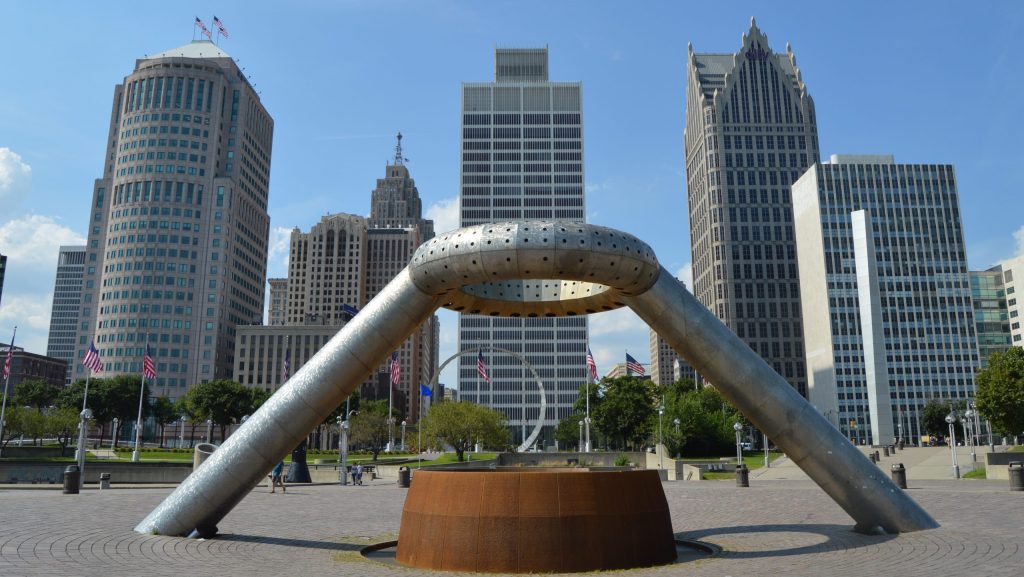How Michigan’s Failures in Detroit, Flint Could Inform Urban Policy Nationwide
The pandemic has presented the nation with a unique opportunity to re-imagine American cities and the chance to prioritize essential services.

Dodge Fountain at Hart Plaza in downtown Detroit.
The ongoing coronavirus pandemic has upended countless American cities and unearthed longstanding inequities in the country’s urban environment.
This seismic shift, instigated by the nation’s public health crisis, has opened up the possibility for change and innovation in America’s urban policy.
Listen: Michigan’s pitfalls can be America’s lessons in rebuilding cities.
Guest
Anna Clark, a Detroit-based freelance journalist, recently wrote a piece for Crain’s Detroit Business, outlining why Michigan is uniquely qualified to inform a new national urban agenda. “Every community has been really hard hit by the way the pandemic has affected city financial health… protests revealing longstanding inequities… if there’s ever been a time for [a new] agenda, this really seems to be the moment,” says Clark.
From Detroit’s bankruptcy to Flint’s water crisis, Clark says Michigan’s tough past can serve as the nation’s lesson on how to rebuild cities. “[Michigan] has a lot to bring to a national urban agenda that is life-affirming that puts people’s essential needs right at the very center, one example might be investing in getting rid of lead pipes,” says Clark. She adds that an integrated response between state and federal officials is key to enacting inclusive urban policy.
Trusted, accurate, up-to-date
WDET is here to keep you informed on essential information, news and resources related to COVID-19.
This is a stressful, insecure time for many. So it’s more important than ever for you, our listeners and readers, who are able to donate to keep supporting WDET’s mission. Please make a gift today.
